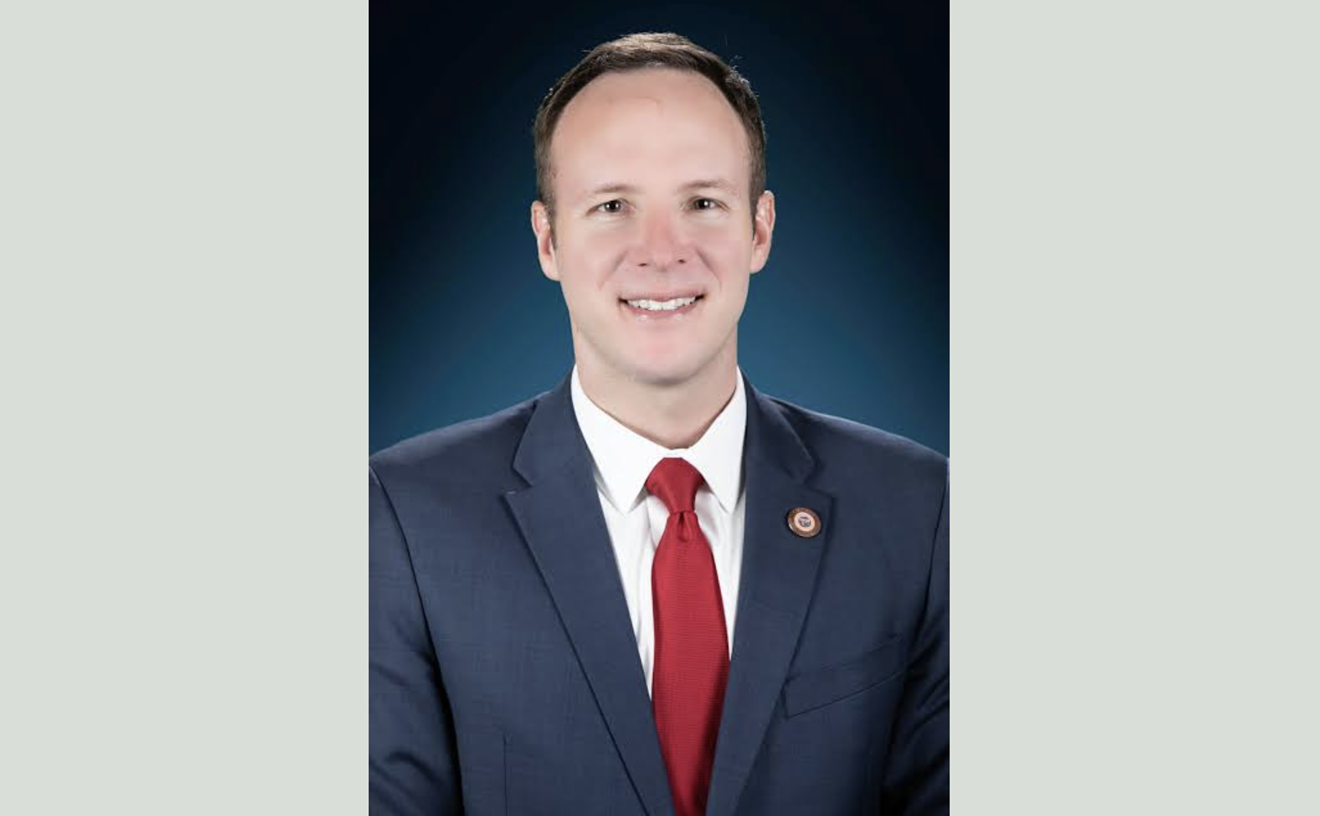The Ordoricas, who are both 65, live in Mammoth, Arizona. He is a retired copper processor. She is a retired security guard. They married 15 years ago, thinking, Fred says wryly, that "the second time around is best."
But they both say their second marriage has been greatly tested since BFA filed for bankruptcy in 1999, because Betty did not want Fred to invest his money -- about $130,000 -- with the Southern Baptist organization in the first place.
"The church factor is one of the reasons I could not dissuade him from investing there," Betty says.
Their emotional fallout from BFA's bankruptcy "darn near destroyed the marriage a couple of times," says Betty.
Betty says she sensed something untrustworthy about the foundation and its force of smiling Christian salesmen, so she decided to do her own investigating. She recalls that when she queried the Arizona Attorney General, the Arizona Corporation Commission and the Better Business Bureau back in the mid-1990s, no one had anything bad to say about the religious nonprofit foundation.
The state agencies Betty had questioned had, in fact, turned a blind eye to BFA for years because it was a religious organization exempt from state securities laws. And, after all, why was there any need to worry? BFA had been given "clean" audits by Arthur Andersen for years.
It wasn't until 1998, after New Times published an investigative series detailing how BFA used a web of shell corporations to hide hundreds of millions of dollars in metastasizing debt from investors, that various state agencies launched their own investigations into the $640 million Ponzi scheme.
Arthur Andersen, with $7 billion in revenues last year, has the "deep pockets" to repay investors, so it's become the target of torts and administrative actions, which allege the firm covered up, ignored or contributed to the fraud.
Arthur Andersen has vigorously denied wrongdoing. In a December 8 statement to New Times, the firm wrote: "These are unproven allegations that we will deal with in a court of law, and that is the appropriate place to present our case. It can't be tried in the media. We think it is sad and distressing that innocent people had to suffer as a result of the actions of BFA management and regret that some believe, wrongly, that we are also somehow responsible. As we have said previously, we believe that we took appropriate actions and followed our professional guidelines."
But not everyone agrees.
Here's an update of the lawsuits and administrative actions and investigations swirling around the BFA debacle.
• The Board of Accountancy. In 1998, following the New Times stories, the state board that licenses and disciplines accountants began an investigation of the role of multinational accounting giant Arthur Andersen -- and its accountants -- in the BFA scandal. After all, BFA provided Arthur Andersen's misleading "clean audits" to those investors who wished to see them.
In what is emblematic of a larger national issue -- a growing regulatory distrust of major national accounting firms -- the state accountancy board last week filed a complaint against Arthur Andersen and three of its Phoenix-based CPAs: Jay Ozer, now retired, Ann McGrath and Alan Hague. In a nutshell, the state claims the accountants and their firm ignored and/or covered up clear signs of financial fraud. The board seeks $600 million in restitution for investors and discipline (probation or suspension and revocation of licenses, for instance) and unspecified fines from each of the named accountants.
The state accuses Ozer, who was previously disciplined for his role as an Andersen accountant who audited Charles Keating's fraudulent financial empire before its collapse ("Legerdemain Man?" Terry Greene Sterling, March 2), of a "pattern of continual deviation from professional standards."
McGrath, who was on the fast track for promotion at the firm, is accused of numerous professional "deviations" including ignoring a road map of fraud provided by a former BFA accountant, Karen Paetz.
Hague is accused of covering up BFA's potential loss of nonprofit status, which would force it to comply with state securities laws.
The accountants could not be reached for a response to the allegations.
In a statement released by Arthur Andersen on December 4, spokesperson Linda Rizer said: "We believe it is inappropriate for this matter to be taken up by the State Board at this time. At the proper time, we will respond fully."
The Arizona Attorney General's Office would not comment when asked whether any of the Arthur Andersen accountants named in the accountancy board complaint will face criminal charges for their alleged roles in BFA's collapse.
• The Criminal Investigation. In 1998, the Arizona Attorney General's Office began a criminal investigation of certain BFA officers, including president William Crotts, attorney Thomas Grabinski, comptroller Don Deardoff and former board members Harold Friend, Jalma Hunsinger and Dwain Hoover. The investigation is ongoing. Indictments have yet to be filed.
• The Lawsuit. In 1999, investors filed a class-action fraud lawsuit against Andersen and BFA insiders, including Crotts, Hoover, Hunsinger, Friend, Deardoff and Grabinski. The Maricopa County Superior Court case is grinding along, hampered by the fact that four judges have recused themselves because of connections with Arthur Andersen or its lawyers. This means current judge Paul Katz has a backlog of motions to rule on.
So what's the status of the lawsuit? Will it ever go to trial or will it settle out of court?
Richard Himelrick, an attorney for the investors, says "everyone but Arthur Andersen" is talking settlement. But Himelrick doesn't seem worried by Andersen's intransigence. The firm is known for fighting long court battles.
In the meantime, state regulatory agencies keep digging up more and more allegations against the firm, which investors cheerfully add to their class-action complaint.
"We like our case better and better," Himelrick says.
• The Bankruptcy. In 1999, BFA and many of its sham companies filed for Chapter 11 bankruptcy in U.S. Bankruptcy Court in Phoenix. Claiming to have about $240 million in assets, BFA owes about $590 million to about 13,000 investors, most of whom are financially unsophisticated lower- to middle-income Christian retirees. (BFA owes another $50 million to other creditors.)
Investors have often expressed skepticism about the integrity of the bankruptcy because former BFA insiders and attorneys have requested fees from the bankruptcy estate. The bankruptcy is expected to gobble up about $10 million in investors' money for professional fees.
So far, investors haven't seen a penny of their money, but a distribution plan slated for final approval this month is expected to net -- after five years -- from 31 cents to 44 cents on their original investment dollar, depending on their classification as "collateralized" or "uncollateralized." They can expect their first quarterly check this month -- for less than 2 cents on the dollar.
• The Securities Division of the Arizona Corporation Commission. Claiming Arthur Andersen "participated" in the BFA fraud, the securities division of the Arizona Corporation Commission in late September filed a detailed complaint against the accounting firm. The state is expected to battle Arthur Andersen in an administrative hearing to exact restitution for the victims.
But on November 29, Arthur Andersen scored a legal victory and pummeled the state. Arthur Andersen persuaded hearing officer Marc Stern to delay the hearing for at least 60 days because BFA's officers and directors, now under criminal investigation, won't testify. The accounting firm says it can't get a fair shot unless the officers testify. The reason: Andersen is expected to defend itself by saying BFA directors and officers hid the fraud from Andersen CPAs.
On November 29, Fred and Betty Ordorica journeyed to Phoenix to join about 100 BFA investors as they picketed Arthur Andersen's Phoenix office on 44th Street. On that very day, Judge Stern had signed an order postponing a hearing in which the state planned to seek restitution for investors from Arthur Andersen.
But neither the Ordoricas nor their fellow picketers seemed to know anything about Arthur Andersen's victory. And they did not know that the accountancy board would fire another volley at Arthur Andersen in just two weeks.
The marching investors might have looked frail -- most were elderly, some limped with arthritis and others squinted at the sunlight from beneath old-fashioned bonnets -- but they were angry.
"It got pretty red hot out there," Fred recalls.
Although they'd never picketed before in their lives, the Ordoricas marched for six hours. They carried hand-painted double-sided poster board placards. The signs said: "We Want Our Money" and "Give My Money Back" and "Arthur Andersen Helped BFA Steal 640 Million From Investors" and "Merry Christmas, Arthur Andersen."
After the march ended, the Ordoricas kept the signs for souvenirs.
View articles on the Baptist Foundation of Arizona:
"The Money Changers"










